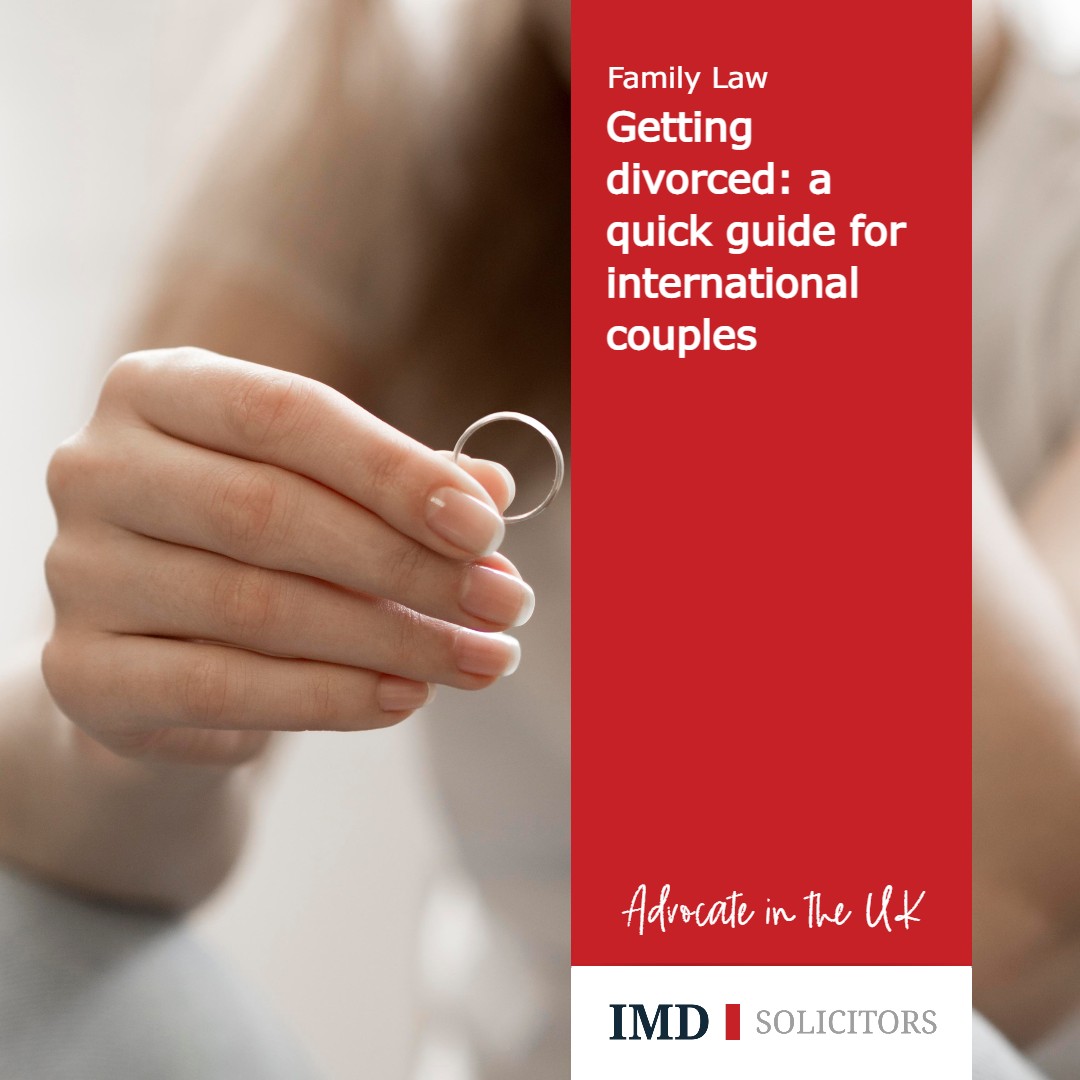Getting divorced: a quick guide for international couples

Going through a divorce is never easy, but international couples often face additional concerns and difficulties when going through the process of ending their marriage. In this article, we provide a short overview of starting the process of divorce for international couples and answer some of the questions you may have. If you need advice concerning international divorce contact our team today on 0330 107 0107.
Does it matter which country I get divorced in?
In short, yes. There are many reasons why the country you choose to get divorced in matters – it can have a huge impact on the outcome of the divorce.
Firstly, you will only have certain jurisdictions available to you, you cannot simply get divorced anywhere. An international divorce solicitor will be able to advise you of your options.
Different jurisdictions have differing attitudes towards what the outcome of a divorce should be, and towards matters including:
- Financial provision and support
- Child residence and custody
- Division of assets
- Societal attitudes towards divorce, and even gender politics issues
Can I start divorce proceedings in England and Wales if we were married abroad?
In most cases, yes. Where you have a valid marriage certificate, you should be able to start divorce proceedings in England and Wales. You must meet the following conditions:
- If your marriage certificate is not in English, you must have a certified translation and this must be sent with the divorce petition when sent to the court.
- Your marriage must have been lawful in the country where you were married. For example, you must have complied with any requirements and customs. If the marriage is not lawful, then you cannot divorce. Common issues we see are where partners did not have the requisite number of witnesses, or failed to have a civil ceremony as well as a religious ceremony.
My spouse has moved abroad, can I start divorce proceedings in England and Wales?
In most circumstances, yes – so long as you are still living in England or Wales. The court has authority to deal with your divorce where one of the following applies:
- You and your spouse are habitually resident in England and Wales, or were last habitually resident and one of you still lives here.
- You have resided in England and Wales for a year and are habitually resident here.
- You have resided in England and Wales for six months, you are habitually resident and you are also domiciled in England and Wales.
- Where both you and your spouse are domiciled in England and Wales.
This can be a complicated area of the law, but an experienced international divorce solicitor can advise you fully on your position.
Where should I get divorced if I got married abroad, but we live in England?
Where you should get divorced will depend on your specific circumstances. Factors which will play an important part in choosing where you may wish to get divorced include:
- How straightforward the process is and how easy it is to get divorced in each of the jurisdictions available to you.
- How the court in each jurisdiction approaches financial settlement and whether this will be beneficial to you
- Whether you have entered into a prenuptial agreement and whether this will be recognised by the courts in your chosen jurisdiction
- How the court in each jurisdiction approaches child matters and whether this will be beneficial to you
Is it better to get divorced in England and Wales?
In the media, the UK is often painted as ‘the divorce capital of the world’. There have been many high-profile settlements in favour of spouses who have chosen to divorce here, and the process is relatively straightforward compared to many other countries.
Depending on which jurisdictions are available to you, it may be your best option from a financial perspective. The courts in England and Wales base their settlement decisions on equality and fairness. When you speak to an international divorce lawyer, they will be able to provide you with an indication as to how your assets may be divided.
Expert International Divorce Law Solicitors in the UK
Our specialist Family Law team conducts cases that have international elements and particularly cross-border divorce matters involving divorce proceedings in the UK where one party may have an international connection. Perhaps you are a French or German national living in England and you are considering a divorce in the UK or have received court papers from the UK, you should take advice at the earliest opportunity and speak to our top-rated Family Law team today by calling 0330 107 0107 or request a callback.
This article is for general information only and does not constitute legal or professional advice. Please note that the law may have changed since this article was published.



















